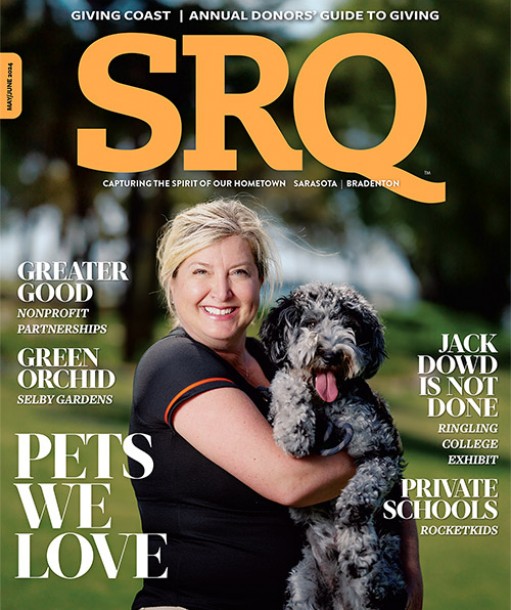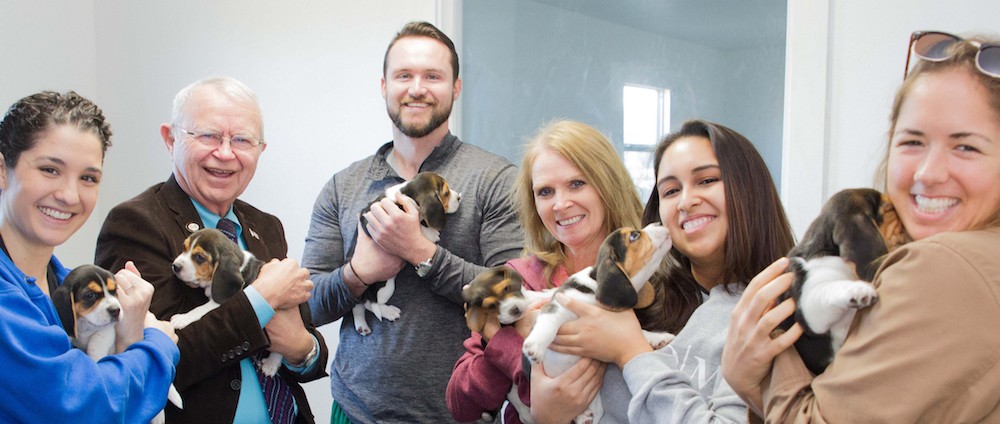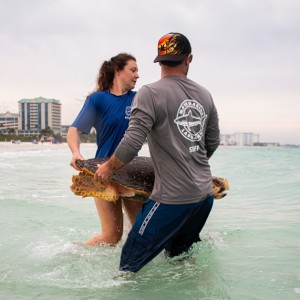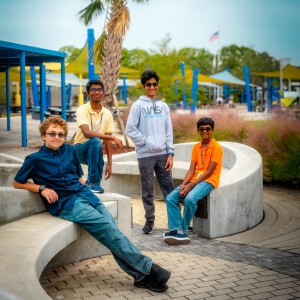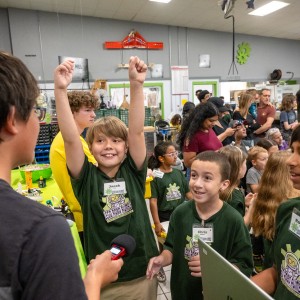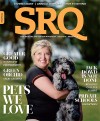Cancer-Detecting Beagles On Track To Change Visits to the Doctor
Todays News
SRQ DAILY FRESHLY SQUEEZED CONTENT EVERY MORNING
TUESDAY APR 30, 2019 |
BY BRITTANY MATTIE
Pictured: LECOM Bradenton students under the supervision of Dr. Thomas Quinn, with Heather Junqueria and a litter of beagle puppies at BioScentDX.
The LECOM Bradenton chapter of the Student American Osteopathic College of Family Physicians (SACOFP) hosted a half dozen beagle puppies on its campus last week as part of an event to introduce students and faculty to the ongoing research they’ve been conducting with BioScentDX, a research and product development facility in Myakka City founded by breeder, trainer and researcher Heather Junqueira. Prior to BioScentDX, Junqueira was breed manager at Southeastern Guide Dogs, and trained diabetic alert dogs for the nonprofit. After losing a relative to cancer, she now trains beagles and basset hounds to use their adept canine scent to detect cancer cells.
Dogs are known to have 300 million smell receptors, compared to humans who have 5 million, but beagles have even more of an advantage. “Beagles have an even more of a refined set of brain lobe and olfactory sensors than other breeds,” says Joel Welin of LECOM. Beagles also have an advanced Jacobson's Organ, which is a bundle of nerve receptors in the roof of their mouths to store and recall aromatic memories. Knowing this, Junqueira has trained her litter to pick up on minute changes in human biomarkers including hormones, proteins and other organic compounds. The results are still considered experimental at this time, but the canines are currently testing at above 95% accuracy in identifying the scent of cancerous cells.
“The beagles are responding positively whenever they find that scent,” says Welin. “But nobody knows exactly what it is that they’re smelling.” So far, the dogs have been trained on breast cancer from already-diagnosed patients—cells purchased from various medical supply companies across the country. They respond “yes or no” to a line of tin cans—one filled with the swatch of cloth saturated with cancerous cell scent that they must sniff out, and sit down for—in order to receive a treat and a verbal reward from Junqueira.
Now, anyone can purchase and send in their own tests for screening from the BioScentDX clinical screening kit. By breathing in a fiber mask to produce a condensate, the samples are then taken to LECOM’s campus for research. “What LECOM does is extract the compounds, or biomarkers, from these masks to form a solution to try to identify what the dogs may be smelling” says Welin. “If they can isolate what it is that the dogs are responding positively to, then they may be able to expand their capabilities to detect other varieties of cancer such as melanoma, lung and prostate. The theory is that there is a common molecule in all cancers.”
LECOM's medical students, along with professor Thomas Quinn, DO, are volunteering their assistance in a joint research venture to develop an affordable, convenient, non-invasive way of screening for cancer and other life threatening diseases. The hope is to deliver a cost-effective, scalable testing application for the early detection of cancer. “The goal is to figure out a way to create a very simple and efficient cancer test, like a thermometer you’d exhale your biomarkers onto,” says Welin. “Much like a pharmacy pregnancy test, it would either hit positive or negative to show your results almost immediately.”
This could potentially arm scared or stubborn patients, who may not particularly enjoy going to the doctor’s for their annual check-up, with the opportunity to detect and seek help to eradicate a fatal disease before it spreads.
Pictured: LECOM Bradenton students under the supervision of Dr. Thomas Quinn, with Heather Junqueria and a litter of beagle puppies at BioScentDX.
« View The Tuesday Apr 30, 2019 SRQ Daily Edition
« Back To SRQ Daily Archive




